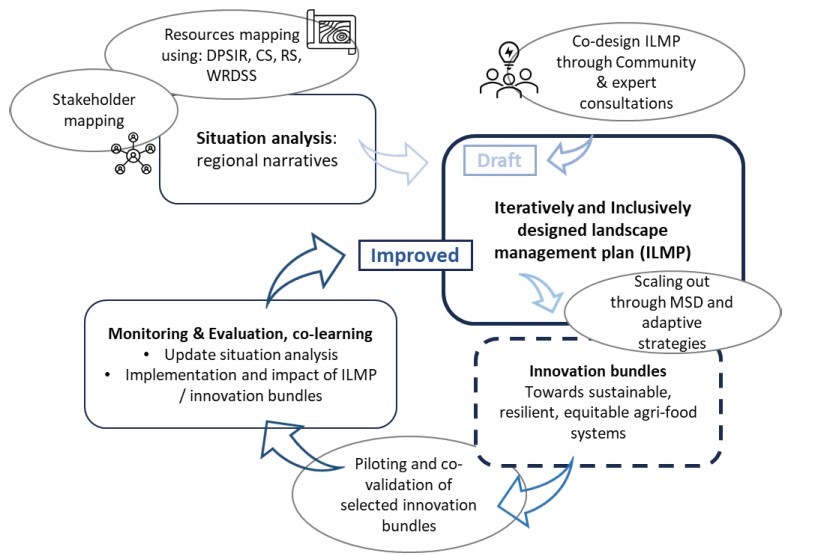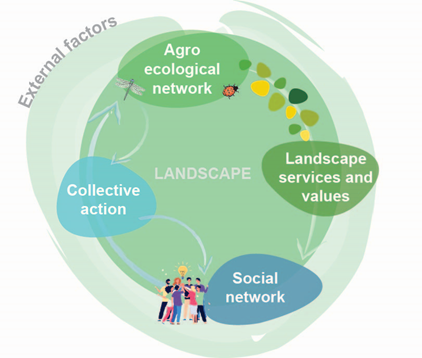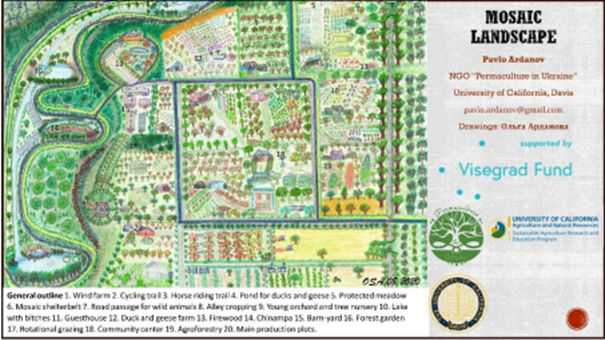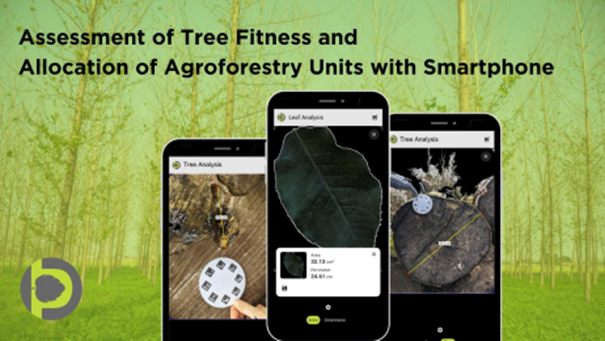Workshops
Workshop 1
Inclusive Landscape Management Pathways for AgriFood Systems Transformation
Convenors:
Gerald Atampugre, International Water Management Institute
Seifu Admassu Tilahun, International Water Management Institute
- Date & Time: Monday, 16 September, 10:30 - 13:30
- Room: Seminar room 1.303
- Register for workshop via conference registration
The planet's agrifood systems face urgent challenges: climate change, biodiversity loss, resource depletion, and social inequalities. Traditional approaches often fail to address these interconnected issues, leading to unsustainable practices and inequitable outcomes. This workshop places a spotlight on inclusive landscape management (ILM) as a catalyst for AgriFood Systems transformation. This is based on the premise that equal access to, and proper use of land and water resources is a prerequisite to building a healthy, productive, and OneHealth sensitive environment for resilient agri-food systems and livelihoods.
|
The uniqueness of the ILM approach include:
|
 |
The main purpose of this 3-hour workshop is to: disseminate research findings from cases in Ghana and Nigeria; validate the ILM co-design framework and practical guide; and share other insights (through videos) from the work package 3 of the CGIAR Initiative called West and Central Africa AgriFood Systems Transformation (TAFS-WCA). Through engaging multistakeholders attending the conference, this workshop will help to refine and enhance the proposed pathways for inclusive landscape management, ensuring they resonate with diverse perspectives and are actionable in varied contexts.
© Image source: Tilahun, S. A.; Atampugre, G.; Zemadim, B.; Cofie, O. 2023. Co-designing inclusive landscape management plans to transform agrifood systems: a technical brief. Colombo, Sri Lanka: International Water Management Institute (IWMI). CGIAR Initiative on West and Central African Food Systems Transformation. 8p.
Workshop 2
Integrated landscape planning through a novel assessment framework: A simulated role-playing game
Convenors:
Jurre Dekker, Wageningen University and Research
Amy Wortel, Wageningen University and Research
- Date & Time: Monday, 16 September, 13:00 - 17:00
- Room: Seminar room 1.308
- Register for workshop via conference registration
Integrated landscape planning: Teaching participants how to apply our newly developed framework, contributing to socially and ecologically well-functioning agrarian landscapes.
|
WUR scientists recently developed a landscape assessment framework for collaborative planning of rural landscapes. The five-step framework (see figure) can be used by stakeholders to identify and assess how the functioning of social and ecological components of their landscape can be improved. In each of the five steps, stakeholders go through a set of questions that facilitate discussion to enable e.g. the formation of a high quality social network with established social rules, agreement among landscape goals, a shared view of the current landscape configuration and quality, evaluation of the landscape services and values, and a common understanding of external factors that influence the landscape.
|
 |
Participants of the workshop will be guided through the framework using a fictional landscape while role-playing. To s(t)imulate actor involvement, we will provide roles with differing (and conflicting) goals and views of the landscape to the participants at the start of the session. The participants are guided through the framework's questions keeping the goals, connections and experiences in mind. By using the framework, the participants will be encouraged to collaborate and integrate differing landscape views and challenges into concrete future actions for collective development.
© Image source: Amy Wortel and Fogelina Cuperus
Workshop 3
Cultivating your research with a transformative agroecological lens: A practical exercise
Convenors:
Beatrice Walthall, Leibniz Centre for Agricultural Landscape Research (ZALF)
José Luis Vicente-Vicente, Leibniz Centre for Agricultural Landscape Research (ZALF) and Institute of Economy, Geography and Demography (IEGD) of the Spanish National Research Council (CSIC)
- Date & Time: Monday, 16 September, 11:00 - 13:00
- Room: Seminar room 1.306
- Register for workshop via conference registration
The term “agroecology” is being widely used in different contexts by academic and non academic people. This broad application has led the term to be used with different – and often contradictory – meanings. Some of these meanings are far from a systemic and transformative vision of agroecology.
The aim of the workshop is to guide researchers and practitioners in aligning their endeavours (such as research, proposals, projects, and farming initiatives) with a systemic and transformative understanding of agroecology.
To achieve this goal, the workshop will first introduce a theoretical exploration, incorporating the integrative framework proposed by Walthall et al. (2024). Secondly, participants will have the opportunity to situate their work within this framework and identify potential avenues for adopting a more systemic and transformative approach. Finally, a collective reflection exercise will be conducted, drawing upon insights from the participants' experiences and the research of Walthall et al. (2024), to assess the current state of systemic and transformative agroecology adoption.
By engaging in this workshop, attendees will cultivate a critical perspective on the diverse interpretations of agroecology, effectively frame their work within a systemic context, and contribute to safeguarding agroecology from potential co-optation.
Workshop 4
Exploring the potential of innovation systems approaches for socio-ecological transformations
Convenors:
Sabine Marr, Leibniz Institute of Ecological Urban and Regional Development
Michael P. Schlaile, Leibniz Center for Agricultural Landscape Research
- Date & Time: Monday, 16 September, 11:00 - 15:00
- Room: Conference room 0.101
- Attendance by invitation only (Project meeting / Registration by e-mail to the organizer:
Sabine Marr, s.marr@ioer.de)
Against the backdrop of grand societal challenges, the normative turn in innovation studies has led to a plethora of conceptual extensions and complementary approaches. Despite a common goal of addressing the complexities of sustainability transitions, these concepts have been developed in isolation by different scholarly communities. Recent examples include challenge-oriented regional innovation systems (CORIS), dedicated innovation systems (DIS), and mission-oriented innovation systems (MIS). The aim of this workshop is to create a discussion space about these concepts and to explore commonalities and differences with scholars that have contributed to the development of these concepts.
Workshop 5
Project consortium meeting "Trees in Restoration of Agricultural Landscapes after Hostilities" & Workshop " Assessment of Tree Fitness and Allocation of Agroforestry Units with Smartphone"
Convenors:
Pavlo Ardanov, Leibniz Center for Agricultural Landscape Research
Maryna Kuzmenko, Petiole
Iryna Kazakova, NGO “Permaculture in Ukraine”
- Date & Time: Monday, 16 September, 11:00 - 16:00
- Room: Lecture hall 0.313
- Attendance by invitation only (Project meeting / Registration by e-mail to the organizer:
Pavlo Adanov, pavlo.ardanov@zalf.de)
Project consortium meeting
|
This workshop aims to design an interdisciplinary research and extension project for the |
 |
The project explores agronomic, economic, and social dimensions of tree cultivation on war-damaged lands, targeting phytoremediation, enhancing local food/energy self-sufficiency, increasing
biodiversity, and transforming the agricultural sector of EU candidate countries in line with EU
sustainable development strategies. Integration of research and extension components (e.g.
FAO Ukraine's "Rehabilitating Damaged Agricultural Land: Demining and Regenerative
Landscape-scale Approaches") enables co-design with stakeholders and early evaluation of
research strategies for incorporation into governmental and international programs.
Following the AgRes2023 conference on "Sustainable Restoration of Agricultural Landscapes
after Military Activities," it fosters cooperation between AgRes2023 and LANDSCAPE 2024
participants. The workshop will generate the first draft of a project proposal (Horizon Europe or
similar), following a customized synthetic methodology co-developed in 2022 by Dr. Ardanov
and other co-organizers of the German-Ukrainian School in Agroecology and Urban Farming.
© Image source: Olga Ardanova
Workshop
|
Our workshop will be thematically linked with the joint workshops 'Trees in Restoration of |
 |
We will concentrate on assessing tree fitness using a smartphone, including a live
demonstration of smartphone application modules for:
- Destructive leaf area measurement (non-destructive measurements of leaves on real
trees are also possible but will require leaving the room and finding an appropriate
tree); - Leaf greenness assessment;
- Measuring the length and width of a leaf or other plant organs, quantifying tree bark
damage, etc.; - Measuring DBH (Diameter at Breast Height) of young trees;
- Measuring the diameter of logs;
- Germination count for tree nurseries.
Additionally, the workshop will include a discussion on the technological potential to detect
interspecies competition, to determine companion species in restoration projects, and to
provide an AI-assisted guide for decision-making on placing agroforestry units within plots in
restoration projects.
© Image source: Petiole LTD
